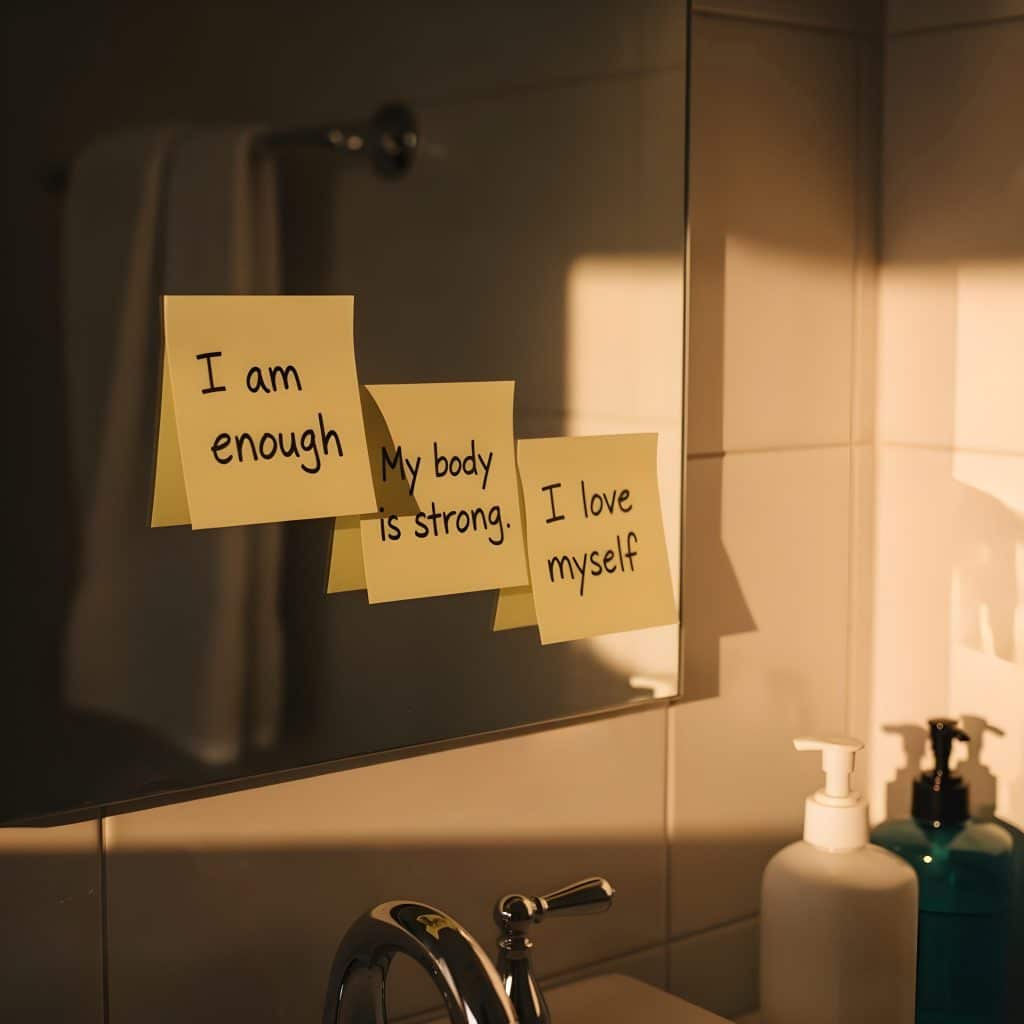Reflection Makes Your Ideas Stronger
Oliver Cooper August 1, 2025
In today’s fast-paced world, we often rush through our tasks and decisions without pausing to reflect. However, reflection makes your ideas stronger by allowing you to step back, think critically, and refine your thoughts. Whether you’re an entrepreneur, a student, or a creative professional, taking time to reflect on your experiences and ideas can lead to better decision-making, improved creativity, and a stronger, more innovative approach to problem-solving.
In this article, we’ll explore why reflection is key to strengthening your ideas, how it enhances your critical thinking, and practical ways you can incorporate reflection into your daily routine for better results.

Why Reflection Makes Your Ideas Stronger
Reflection is more than just thinking; it’s about stepping back, taking a closer look, and asking questions that help you gain a deeper understanding of your thoughts, behaviors, and decisions. It’s a process that allows you to analyze and learn from past experiences, which in turn improves future decision-making and idea development.
Research suggests that reflection has a profound impact on mental clarity, creativity, and critical thinking. In fact, many top-performing individuals and innovators, such as Steve Jobs and Albert Einstein, regularly set aside time for reflection, using it as a tool to nurture their creativity and sharpen their ideas.
1. Clarity and Insight
When you reflect on your ideas, you give yourself the opportunity to step back and gain clarity. Often, when we are caught up in the hustle of daily life, we make decisions or form opinions without fully understanding the implications. By taking the time to pause and reflect, you gain insights into the underlying factors affecting your ideas, which can lead to more thoughtful, well-rounded conclusions.
A study from Harvard Business Review found that individuals who spent time reflecting on their decisions were able to identify key insights that were otherwise overlooked. This process of clarifying and re-examining ideas leads to more refined and successful outcomes.
2. Enhancing Creativity
Reflection allows you to revisit past experiences and connect seemingly unrelated ideas. This process helps to spark creative thinking. For instance, if you are working on a business idea, reflecting on past challenges, successes, and even failures can help you develop fresh solutions and new approaches.
Research published in Psychological Science shows that periods of quiet reflection foster creative thinking. The study found that when participants took time to step away from a task and engage in reflective thinking, their creative problem-solving abilities improved.
3. Learning from Mistakes
One of the most powerful benefits of reflection is learning from mistakes. Often, we fail to realize the lessons hidden in our setbacks. By reflecting on what went wrong and why, you gain valuable insights into how to avoid making the same errors again. This iterative process strengthens your decision-making ability and sharpens your ideas.
A study conducted by The Journal of Business Psychology found that leaders who reflected on their failures were better able to adapt and improve their strategies over time. This ability to learn from mistakes is crucial in both personal growth and professional development.
4. Improved Decision-Making
Reflection enhances decision-making by allowing you to critically analyze different options and their potential outcomes. When you reflect, you consider past decisions and their consequences, helping you avoid making the same mistakes twice. You also develop a deeper understanding of the factors that drive your choices, whether they are emotional, logical, or based on external pressures.
A 2020 study in Journal of Organizational Behavior found that individuals who engaged in regular reflection were more confident in their decision-making. They felt more empowered to make thoughtful decisions because they had developed a better understanding of their motivations and thought processes.
How Reflection Enhances Creative Thinking
Creative ideas don’t always spring forth immediately. Sometimes, they need time to percolate, and reflection provides that space for creativity to flourish. Whether you’re brainstorming ideas for a new project or trying to solve a complex problem, reflection is the key to unlocking new perspectives.
Here’s how reflection boosts creativity:
1. Allowing Ideas to Evolve
Reflection offers the opportunity for ideas to evolve and improve over time. When you revisit a concept or project, you may realize there’s a better or more efficient way to approach it. The act of revisiting an idea allows for refinement and allows you to discard any flaws or weaknesses that you initially missed.
According to The Creativity Research Journal, individuals who reflect on their creative work tend to improve their ideas because they engage in iterative thinking, revisiting and refining their concepts. Over time, this process helps turn raw ideas into polished, innovative solutions.
2. Bringing in New Perspectives
Reflection allows you to broaden your thinking. It encourages you to look at an idea from different angles, which can help you spot opportunities for improvement. This practice helps you view your ideas in a new light and consider options that you might have previously overlooked.
A report by The National Creativity Network found that taking time to reflect on a project or idea often leads to more diverse and innovative solutions, as individuals engage in perspective-taking and lateral thinking during reflection.
3. Sustaining Creative Momentum
Regular reflection not only enhances individual ideas but also sustains creative momentum over the long term. When you engage in reflective thinking regularly, you create a feedback loop that encourages continuous growth. Each reflection helps inform future ideas, leading to a more productive and fulfilling creative process.
How to Incorporate Reflection into Your Routine
Making reflection a habit doesn’t require hours of deep contemplation. In fact, small, consistent reflective practices can lead to significant improvements in the strength of your ideas. Here are a few strategies to incorporate reflection into your daily routine:
1. Keep a Journal
One of the simplest ways to reflect is through journaling. Take a few minutes at the end of each day to write down your thoughts, challenges, and successes. By doing so, you not only release any pent-up thoughts but also gain clarity on your ideas and decisions. Journaling helps you track your progress, analyze mistakes, and refine your thoughts.
2. Set Aside Time for Quiet Reflection
Make time for uninterrupted reflection. Whether you prefer morning or evening, find a quiet space where you can reflect on your day, work, or projects. Without distractions, you can think deeply and gain valuable insights.
Research from The Journal of Applied Psychology suggests that taking quiet time for reflection can help improve focus and cognitive performance. Setting aside just 10-15 minutes a day can make a big difference in the quality of your ideas.
3. Ask Yourself Key Questions
During reflection, ask yourself questions that help you dive deeper into your thoughts and ideas. For example:
- What worked well today, and why?
- What challenges did I face, and how can I address them next time?
- How can I improve my approach to this project or idea?
Asking reflective questions like these helps you gain insights into your decision-making process and fosters critical thinking.
4. Seek Feedback from Others
While self-reflection is important, feedback from others can provide valuable perspectives. Engage with peers, mentors, or colleagues to reflect on your ideas. Others may point out blind spots or suggest improvements you hadn’t considered. Collaboration enhances the reflective process and strengthens your ideas.
Conclusion
In conclusion, reflection is a powerful tool that can significantly enhance the quality of your ideas and decisions. By making reflection a regular habit, you can improve your critical thinking, foster creativity, and avoid repeating past mistakes. Whether you are brainstorming, working through challenges, or developing new concepts, taking time to reflect helps you build stronger, more innovative ideas.
Incorporate reflection into your daily routine, and you will likely find that your ideas grow sharper, your decisions become more confident, and your creative processes are more productive. The key to improving your thinking lies in the time you take to step back and consider the bigger picture.
Reference
- Centre for Pedagogical Innovation. (n.d.). The Role of Reflection in Creativity and Learning. Retrieved from https://brocku.ca/pedagogical-innovation
- Verywell Mind. (2023). How Self-Reflection Benefits Your Mental Health. Retrieved from https://www.verywellmind.com
- Edutopia. (2023). 5 Activities That Promote Reflection in the Classroom. Retrieved from https://www.edutopia.org







